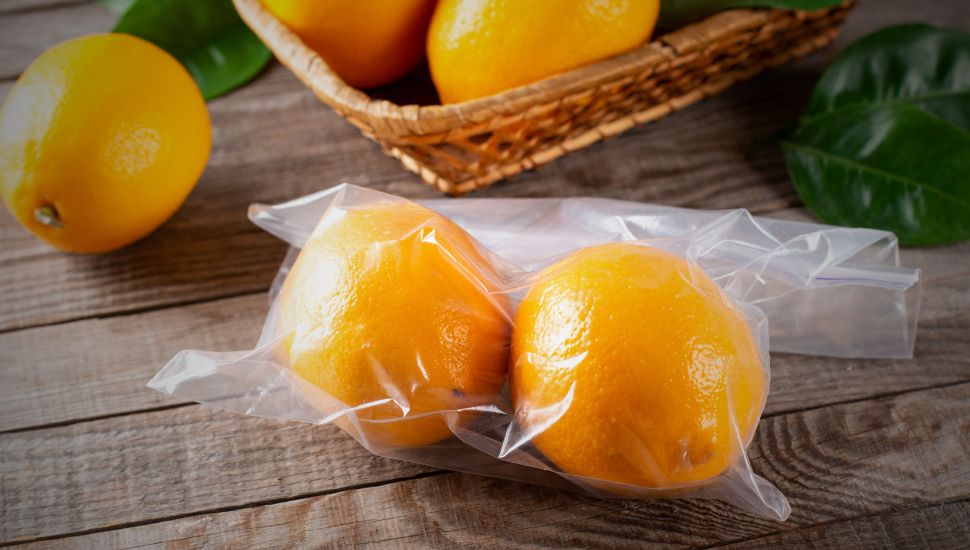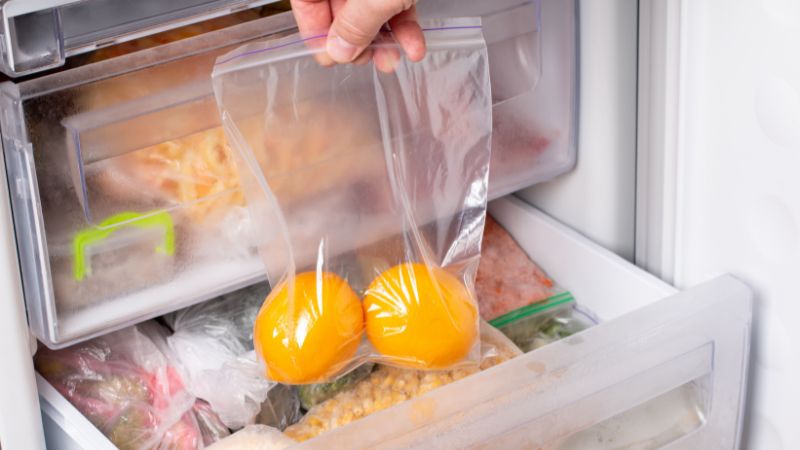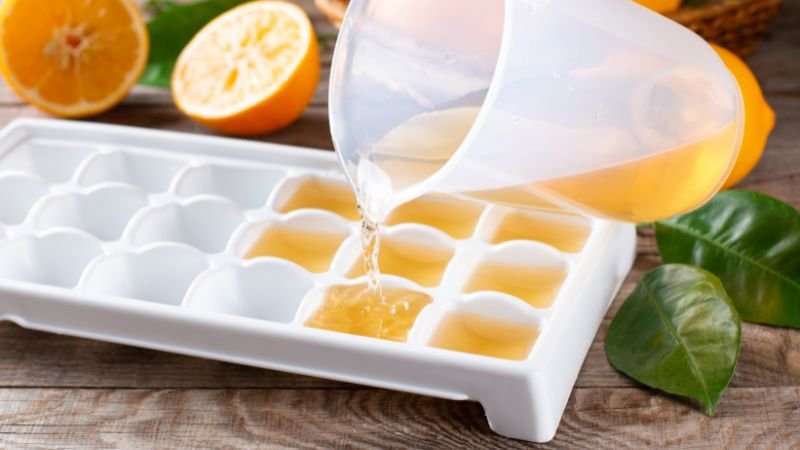
The Citrus Lemon is a small species of ever-green plants presently found all over the globe which bears small yellow fruit, which we term ‘The Lemon Fruit.’
Lemon is one of the most versatile ingredients to add to your dish, as its flavor can enrich the dish with a contrasting bitterness or bring life to your palate and taste buds with its characteristic tartness.
From tea and salads to pasta and even water, lemons make their place everywhere. Their versatility is manifested in all their different forms of usage.
Lemons can be peeled, sliced, grated and juiced and become an inseparable part of any dish which you pair with them.
It is of great importance to discuss the storage of such a perfect thing, and so the questions arise; how long can you store lemons? And can you freeze them? ? Keep on reading to find out.
Can You Freeze Lemons?
Lemons are a wonderful ingredient, and their use in everyday life is evident from the fact many people start their day with a glass of water and a slice of lemon. Such people who use lemons regularly need lemons to have a longer shelf life so that they don’t go to waste.

Lemon shelf life is increased by refrigerating them, but if you want to store them even longer and are eager to ask if you can freeze them, then I assure you that you can freeze lemons. So when your life gives you lemons, put them in the freezer.
Related guides:
- Can you freeze chicken salad? (pro tips!)
- Can you freeze salmon? (freeze and savor)
- Can you freeze lettuce? (keep it fresh)
- Can you freeze ricotta cheese? (easiest way)
- Can you freeze guacamole? (keeping it fresh)
How To Freeze Lemons?
You can freeze lemons, but you need to know how to do it appropriately so that you don’t ruin the lemons you are going to store. Follow the following steps to store lemons appropriately:
- Before you do anything with your lemons, it is absolutely imperative that you wash them thoroughly and scrub their peels clean
- Once you have cleaned your lemons, decide how you want to store your lemons. Decide between if you want to store them whole or in slices.
- Once you’re done with that, find yourself a sealable bag and put your lemons whole or sliced into the bag but avoid overfilling.
- Once you have filled the bag, try to remove as much air from it as you can by squeezing it or with a straw.
- After you have vacuumed the bag, put it in the freezer and flash freeze it so that the lemons don’t stick.
How To Freeze Lemon Slices?
Some people prefer to freeze lemon slices over whole lemons because when you freeze whole lemons, the change of texture is more prominent, and the center of the lemon gets mushy.

You can avoid that if you freeze lemons in the form of slices. You can cut whole slices or half moons, plus it is more convenient to freeze slices as you don’t have to cut lemons again and again, and slices retain their texture better.
How To Freeze Lemon Zest?
Zest is the outermost layer of the peel of citrus fruits, and to zest a lemon means to simply remove this layer in shreds of very thinly cut slices.
Zest is a savory substance, and citrus fruits are often grated for their zests, and you should do the same every time you get your hands on a lemon.
Even if you don’t require the zest immediately, you can store it for later by freezing it. Zest is fairly easy to freeze, and all you have to do is divide it into portions, seal the portions in a plastic bag, and put the bag in the freezer.
How To Freeze Lemon Juice?
To freeze lemon juice, you’ll first need to squeeze the juice out of the lemons. Once you have juiced all the lemons in a bowl, find yourself an ice cube tray.
Gently pour the juice from the bowl into the tray but don’t fill it to the brim because lemon juice will expand during freezing.

Once you have filled the tray, let it sit in the freezer and freeze. Take it out after a couple of hours to see if the cubes have frozen.
If they have, take them out and seal them in a plastic bag, mark the date, and put the plastic bag back into the freezer.
How Long Can Lemons Last In The Freezer?
Whole uncut lemons can last for a few days in the fridge, while cut or sliced lemons have a life which is a little less than that of whole lemons. You can preserve these lemons for longer periods of time in the freezer.
Lemons sliced or whole will last up to 3 to 4 months in the freezer, but it is actually not recommended to consume 3 to 4-month-old frozen lemons because freezing preserves the lemons, but it doesn’t preserve them at their best.
Does Freezing Lemons Change Taste?
Yes. Freezing lemons changes their taste, without a doubt. Lemons are the literal embodiment of freshness, but frozen lemons are a little less so.
With frozen lemons, you can’t just sigh the same refreshing breaths which you can after you squeeze a fresh lemon into your drink.

Moreover, the texture of lemons does not fare well in the freezing process, and this is especially true for whole lemons because after defrosting when you cut them, you’ll find yourself a soft, mushy center without taste.
Final Verdict:
Lemons are a wonderful product, and though they don’t freeze excellently, they can still be stored at a satisfactory quality if they are prepared appropriately for the freezing process.
And there are multiple ways of lemon storage. Lemons can be frozen whole, cut, sliced, or zested, or their juice can be frozen to ensure a steady supply.
I have explained many ways of properly freezing lemons, but you shouldn’t always follow them just because freezing is an available option for lemons.
Instead, try to consume them fresh and treat yourself better and leave them freezing for only for when you buy more than you need.
FAQs (Frequently Asked Questions)
Does Freezing Lemons Affect Vitamin C?
As it was said earlier, freezing can preserve lemons for a long period of time, but it can’t preserve the lemons at their best.
The frozen lemon, after defrosting, will be a lesser version of itself, and of course, it includes the loss of metabolites like Vitamin C.
Freezing, defrosting, and refreezing diminishes the Vitamin C content of lemons greatly.
What Is The Best Way To Store Whole Lemons?
In my personal opinion, lemons should be consumed fresh or refrigerated and shouldn’t be frozen, but freezing becomes inevitable if you have bought a little too many and want to keep them from being wasted.
In such a case, you shouldn’t store the lemons whole but instead cut them into thin slices and then freeze the slices in sealed freezer bags.
How Long Do Cut Lemons Last In The Freezer?
Cut or sliced lemons can last about three to four months in the freezer, which is about the same time as whole lemons, but it is actually better to freeze sliced lemons than whole lemons.
This is because whole lemons degrade more in texture and taste during the freezing process when compared to sliced lemons.
Should You Peel Lemons Before Storing Them In The Freezer?
No, it is not necessary to peel lemons before you try to store them because the lemon peel is actually useful and contains a lot of important oils.
By peeling a lemon, you are essentially wasting all these essential oils which could be utilized.
What you can do instead of peeling is that you can zest the outer peel of the lemons you are going to store and then freeze-store the zest separately.
Can You Freeze Lemons Without Their Peel?
Yes, you can store and freeze lemons without their peel, but you shouldn’t do it just because you can. Peeling lemons is not recommended because.
#1: The peel itself is wasted in the process.
#2: It exposes them to oxidation and freezing hazards.
#3: They come in direct contact with the plastic bag.
#4: They lose their freshness quickly without their peel.









